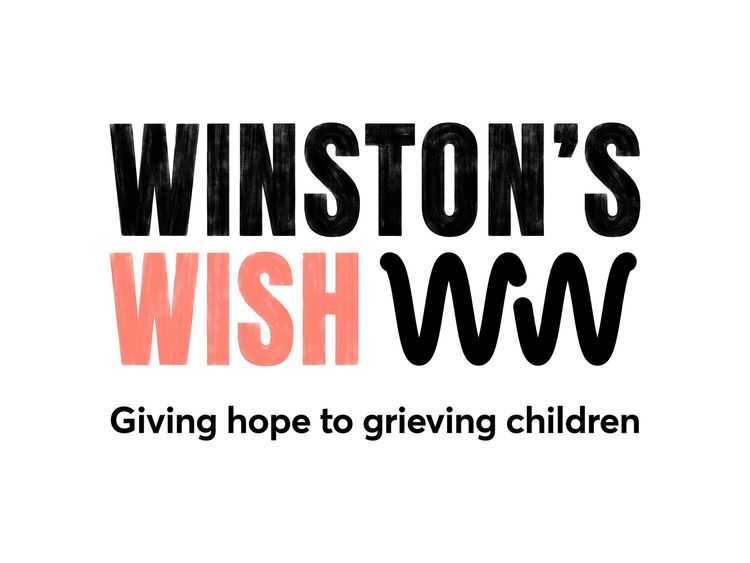Children react to grief in their own ways. Some might not seem to react much when you first tell them that someone has died. It can take time for them to process what’s happened and share their feelings. Others may feel upset right away or switch between emotions quickly. Every child’s reaction is unique and the support they need will be different too.
On this page, we explain what children understand about grief at different ages, how grief affects children, and ways to support them.
Some of the suggestions on this page are from conversations with Youth Ambassadors at Winston’s Wish, the child bereavement support charity.
Behaviour in grieving children
Children may not have words for how they feel. Instead, they might show their emotions through their behaviour. Their emotions might change quickly. We’ve listed some behaviours you might notice below.
Clinginess. Children may refuse to be left and try to cling to you. It can be a sign that they need reassurance that you’re not going to die and leave them too.
Distance. Some children can put up a barrier with people close to them because they’re scared of getting hurt again. They might want to spend more time away from home, with friends or at school.
Aggression. This may be a child’s way of expressing helplessness when someone dies.
Regression. Acting younger than their age can be a sign of insecurity. Young children may start wetting or pooing (soiling) themselves. Or they may want to have a bottle or dummy again.
Lack of concentration. A child may find it hard to concentrate at school and have trouble with their work.
Sleep problems. Children may find it hard to sleep and become afraid of the dark. Or they might feel like they need to sleep all of the time.
Trying very hard to be good. Young children might believe that their behaviour can influence events. This is called magical thinking. It might mean that they try hard to be good or feel guilty about bad behaviour.
Masking their emotions. Children may hide their feelings to protect people around them.
What children understand about death at different ages
How much a child understands can depend on different things. These include:
- their age
- stage of development
- family upbringing
- personality
- if they knew someone who died before.
Children are all different and do not develop at the same rate. Two children in the same family who are about the same age may react differently to a bereavement. Use what you know about the child and adapt what you say to suit them. Be led by what they want to know. If you do not know the answer to something, it’s OK to say that.
It's natural to worry about telling a child too much. You could start by asking the child what they already know, and build the conversation from there. You can assess how much they understand by the questions they ask. In general, if a child asks a question, they are ready to hear the answer.
Grief in children with special educational needs or disabilities (SEND)
You might worry about upsetting or confusing a child with SEND by talking about the person who’s died. But speaking openly can help them:
- make sense of the death
- make it easier for them to express their feelings.
Remember, you know the child best. Support them in a way that you feel is right for them.
Children with SEND might find it harder to understand death or express their grief. Here are some things that could help:
-
Communicate with them in the way you usually do and that you know they find comforting. This might be talking, using picture cards, watching videos, drawing or looking at photos.
-
When you are talking to them about the person who died, use simple words like ‘dead’ and ‘died’ to avoid confusion.
-
Encourage them to express how they’re feeling. Some children may not show how they are feeling through words, but you might notice changes in their behaviour.
-
Use reassuring behaviour like holding their hand when they’re grieving or upset.
-
Keep a normal home routine as much as possible. When someone dies, their lives may become disrupted. For instance, there may be changes to who looks after them, the home routine, or where they are cared for. Some children might find this distressing. You might like to reinforce what’s still the same for them. For example, they might still have the same school, same teacher, same bedroom, and same friends.
-
Consider doing something regularly to remember and celebrate the person. This could include looking at photos or a memory box. Having this time where they can express their feelings might help a child with SEND to feel reassured and safe.
You may find it helpful to speak to a health and social care professional, or an organisation like Winston’s Wish. They may be able to help support a child while they’re grieving. If they go to school, you could reach out to their pastoral team, or special educational needs and disabilities coordinator (SENDco) if they have one.
How to help a child who's grieving
It can be hard to know how to help a child who is grieving. Use what you know about the child to support them in a way that’s right for them. We’ve listed some things that might be helpful.
- Try to talk openly about the person who’s died and how the child is feeling.
- Find out what support is available at school.
- Help them to keep a routine and engage with their hobbies.
- Make specific offers of help. For example, you could say “Do you want me to stay with you at football practice today?” or “Can I help you with your homework this evening?”.
- Help them to remember the person.
Every child is different. Some children will feel supported enough by their family, friends and school. Other children might benefit from specialist bereavement support. This could be by joining a group for bereaved children, if they’re feeling lonely. Or, it could be by talking about their bereavement with someone with specialist knowledge.
Winston’s Wish is a specialist bereavement charity that offers bereavement support to children and young people. Call 08088 020 021, email ask@winstonswish.org or use their live chat to speak to a member of their team.
The grieving process for children
Grief may affect children differently over time. They might also grieve in cycles rather than all at once.
This means that although it may seem like they grieve more quickly, they may have feelings of grief for longer. A child who has experienced a bereavement may find that their grief comes back at important times in their life. It could be if they start a new school, go to college, start a job, get married or have children.
Let children know that it’s OK to keep doing the things they enjoy when they’re ready. Reassure them that they do not need to feel guilty about it. Let them know that people come to terms with death in their own way, at their own pace.
Rather than grief going away, or getting less over time, children are likely to grow around their grief. Their grief will not get smaller, but their life around their grief will get bigger. So, their sad feelings of grief will become less frequent or easier to manage. It’s not a straightforward process. Sometimes grief will feel really big, like around a special day or anniversary. Other days, it will feel smaller. Winston’s Wish have a handy diagram which illustrates this process (linked below).
As children grow, their understanding of death and how they show their feelings may change. Stay open and ready to support them as they go through these different stages and emotions.
Complicated or prolonged grief in children
Some children might grieve for a long time. If grief is still having a significant impact on their life a year after the person has died, they could have complicated or prolonged grief. This is grief that stops them doing everyday things like washing, watching TV, or going outside of the house. It can help to listen to them to understand how they’re feeling. If you’re worried about a child’s wellbeing, speak to their GP or seek specialist bereavement support.
Support for parents and carers with grieving children
If you’re supporting a child or young person when someone dies, you might feel like their needs take priority over yours. But it’s important to look after yourself and to let yourself have time to grieve too.
You might feel alone right now. We’re here to help. If you are grieving or are worried about a child who’s grieving, you can call the Marie Curie Support Line for free on 0800 090 2309. Or email us at support@mariecurie.org.uk.
We also have trained bereavement support volunteers who can offer up to six sessions of support over the phone. Book a call today.
Winston’s Wish has a free helpline for advice about supporting children and young people who’ve been bereaved. Call 08088 020 021, use the live chat on their website, or email ask@winstonswish.org to speak to one of their team.

